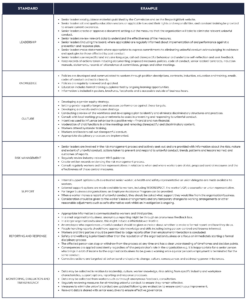The Australian Human Rights Commission (Commission) has released Guidelines for Complying with the newly enacted Positive Duty under the Sex Discrimination Act 1984 (Cth) (Act) (Guidelines). You can read our previous article here, which provides a summary of some of the key changes under the Act, including an outline of the positive duty.
Positive Duty
By way of brief summary, following the Respect at Work amendments introduced in 2022, under the Act employers, and persons conducting a business or undertaking, have a legal duty to take reasonable and proportionate measures to eliminate, as far as possible, sexual harassment, sex-based harassment, sex discrimination, conduct creating a workplace environment that is hostile on the ground of sex, and related acts of victimisation.
The Guidelines
From 12 December 2023, the Commission will have the power to investigate non-compliance with the new positive duty, with new powers to issue compliance notices, make applications to federal courts for an order to direct compliance and enter into enforceable undertakings with businesses/organisations.
The Commission has stated that it is an expectation that employers comply with the Guidelines, and the extent to which an employer has complied with the Guidelines, will play a part in the Commission’s determination as to whether or not an employer has contravened their positive duty to eliminate unlawful discrimination under the Act. However, this will also be subject to the test of what may be reasonable and proportionate for the organisation/business.
The Guidelines set out a number of principles that businesses should consider and apply including:
- Consultation: talking to workers about what they need for a workplace to be (and feel) safe and respectful, and risk and mitigation options.
- Gender equality: taking action beyond equal treatment to achieve equal outcomes, also known as substantive gender equality.
- Intersectionality: recognising that different aspects of a person’s identity intersect with and impact one another. By taking an intersectional approach, organisations identify and address these unique risk factors and intersecting disadvantages.
- Person-centred and trauma-informed: ensuring that workplace systems, policies and practices affirm the safety and dignity of the people who encounter them and support healing.
The Guidelines also establish seven standards that outline what the Commission expects organisations to do to satisfy the positive duty under the Act. The standards cover the following areas:
Leadership
- Senior leaders must understand and have up-to-date knowledge of their obligations under the Act.
- Senior leaders must ensure appropriate measures to prevent and respond to unlawful conduct is developed, recorded in writing, and communicated to all employees.
- Reviews of the measures’ effectiveness must be undertaken, and workers constantly updated.
- Senior leaders must be visible in committing to safe, respectful, and inclusive workplaces that value diversity and gender equality.
Culture
- Organisations and businesses must create a culture that is safe, respectful, and inclusive and values diversity and gender equality. This culture must encourage both workers and leaders to report unlawful conduct, minimise harm and promote accountability for wrongdoing.
Knowledge
- Organisations and businesses should create and implement policies promoting respectful behaviour and advising employees of unlawful conduct.
- Employees should be provided education on expected standards of behaviour, actions and attitudes that foster equality and respect; identifying and communicating behaviours that are unlawful and the consequences of this conduct; employees’ rights and responsibilities for safe, respectful and inclusive workplaces and relationships.
Risk Management
- Recognition from businesses that unlawful conduct under the Act is a health and safety risk.
- A risk-based approach should be taken towards prevention and response.
Support
- All workers should be informed of appropriate support, and it should be made available to workers who experience or witness unlawful conduct.
Reporting and response
- Appropriate options for reporting and responding to unlawful conduct under the Act should be available to all workers and regularly communicated.
- Responses to complaints of unlawful acts should be consistent, timely and minimise harm and victimisation of persons involved.
- Consequences should be consistent and proportionate.
Monitoring, evaluation and transparency
- Appropriate data should be collected to understand the extent and nature of unlawful conduct under the Act in the workforce.
- Data should be used to improve work culture and to develop measures for preventing and responding to unlawful conduct.
- Businesses should be transparent about reported instances of unlawful conduct and actions taken to address this conduct.
The Commission has also provided some guidance on how an organisation/business can implement the seven standards. Below are some practical examples provided by the Commission:
Our Employment, Workplace Relations, and Safety group at McCabes Lawyers is well placed to assist employers with advice, policy updates and training relating to sexual harassment obligations for employers. Feel free to get in touch.
